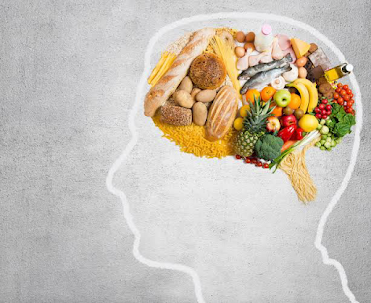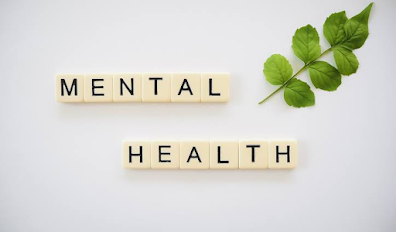It is widely accepted that our diet and physical health are related. Yet, newer evidence indicates that nutrition might have a big impact on mental health. Many research in recent years have connected particular dietary habits with better mental health outcomes, suggesting that nutrition may be extremely important in controlling and preventing mental health issues.
A increasing corpus of research points to a connection between food and mental health. The impact of diet on mental health is equally as significant as the physical benefits of a healthy diet, such as weight loss and disease prevention, which attract a lot of attention. The relationship between diet and mental health will be discussed in this blog, along with some dietary adjustments you may adopt to enhance your mental health.
Research have shown that those who consume a diet high in processed foods, sugar, and unhealthy fats are more likely to suffer from depression and anxiety than those who consume a nutritious diet high in fruits, vegetables, whole grains, lean protein, and healthy fats. There are several explanations on why this could be the case.
First, a balanced diet gives your brain the nutrition it needs to function effectively. For instance, diets high in sugar and processed foods have been associated to melancholy and anxiety, while omega-3 fatty acids found in fish and nuts have been connected to better mental health outcomes.
Second, the microbiome, or collection of microorganisms that live in your gut, can benefit from a nutritious diet. According to research, the gut microbiome is extremely important for maintaining mental health, and disorders like sadness and anxiety have been related to an imbalance in the bacteria in the stomach.
Finally, a balanced diet can aid in controlling internal inflammation. Chronic inflammation has been connected to many mental health issues, such as Depression and anxiety.
So, what nutritional modifications can you make to enhance your mental health? Here are a few ideas:
(1) Consume more fruits and vegetables because they are a great source of vitamins and minerals that your brain needs to stay healthy. At least five servings of fruits and vegetables should be consumed each day.
(2) Choose whole grains over processed foods because they are a rich source of fibre, which lowers inflammation and helps to control blood sugar levels. Choose whole-grain varieties of bread, pasta, and rice in place of refined varieties.
(3) Increasing your consumption of healthy fats has been linked to improved mental health. Omega-3 fatty acids are found in fatty fish, nuts, and seeds. Make an effort to regularly include these foods in your diet.
(4) Reduce your intake of sugar and processed foods, which have been related to sadness and anxiety and can create inflammatory reactions in the body. Reduce your consumption of these foods and concentrate on complete, nutrient-dense foods in their place.
(5) Think about taking a probiotic supplement: probiotics can assist your gut microbiome, which can help your mental health. If you think a probiotic supplement would be beneficial for you, discuss it with your doctor.
In conclusion, it is more evident that food and mental health are related. You may enhance your mental health and lower your chance of contracting illnesses like sadness and anxiety by adopting little dietary modifications. For more specific guidance on how to make dietary changes that works for you, consult a qualified dietician or your physician.




0 Comments